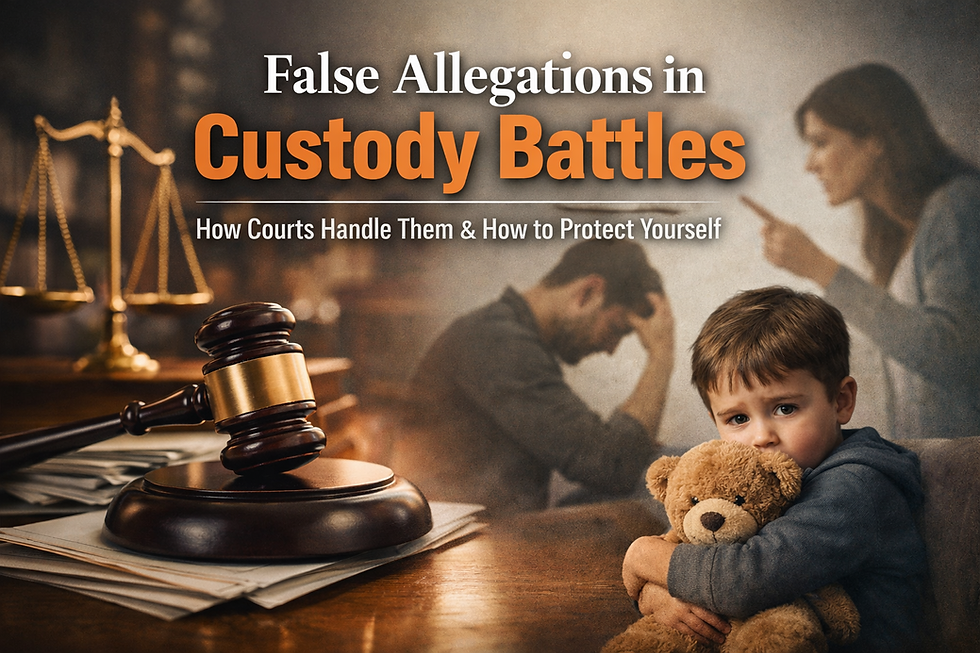Can I Keep My Ex’s New Partner Away From Our Children? Understanding the Legal Factors That Matter in New York State
- Paul Tortora Jr.
- Jul 7, 2025
- 3 min read
Updated: Jan 12

If you're going through a divorce or custody battle in New York, one of the most emotionally charged issues that may arise is your ex introducing a new romantic partner to your children. It's natural to have concerns, especially if you believe that this new person may be a bad influence or even pose a danger. But can you legally keep your ex’s new partner away from your children?
As an experienced Syracuse family law attorney, it's a question I often get asked. The answer is: it depends. Family courts in New York prioritize the best interests of the child, and several specific legal factors will determine whether a court will restrict contact with a parent’s new significant other.
Legal Standard: The Best Interests of the Child
In any custody or visitation dispute, New York courts base their decisions on what serves the best interests of the child. This broad standard includes many factors, such as the child’s physical and emotional well-being, stability, safety, and the ability of each parent to provide a nurturing environment.
Unless a new partner negatively impacts the child’s welfare, courts are generally reluctant to interfere with a parent’s judgment about who they choose to date or live with.
When Can a Court Restrict Access to a New Partner?
To prevent your ex’s new partner from being around your children, you will need to show that their presence:
Endangers the child’s physical or emotional safety (e.g., substance abuse, domestic violence history, child abuse or neglect)
Interferes with the child’s stability or routine
Creates a toxic or inappropriate environment (e.g., ongoing conflict, foul language, overt sexual behavior)
Violates existing court orders or parenting agreements
If you raise general objections or emotional discomfort, but lack clear evidence of harm, the court is unlikely to issue restrictions.
Common Evidence Used in These Cases
If you believe your ex’s partner poses a risk, work with your attorney to gather strong documentation, such as:
Police reports or Orders of Protection
Medical or psychological evaluations
Witness statements
Social media posts that suggest harmful behavior
Testimony from therapists, teachers, or childcare providers
A court may consider modifying a custody or visitation arrangement, or issuing a “no-contact” or supervised visitation order, if credible evidence supports your concerns.
Can You Include a "No Contact" Clause in a Custody Agreement?
Yes, but both parties must agree, or a judge must find that such a clause is necessary for the child’s welfare. A common example is a provision that prevents either parent from introducing a new partner to the children until a relationship has lasted a certain amount of time (e.g., six months).
Contact a Syracuse Family Law Attorney Today
If you're concerned about your ex's new partner and how it may affect your children, you don't have to navigate the legal system alone. We help parents throughout Central New York protect their children and assert their legal rights in custody and visitation cases. Contact us today for a confidential consultation with an experienced Syracuse family law attorney to discuss your options and how we can help you create a safe and stable environment for your children.
For more information on child custody proceedings, please visit our Child Custody and Frequently Asked Questions pages
Disclaimer: This blog post is for informational purposes only and does not constitute legal advice. Laws and guidelines can change, so always verify with current statutes or a professional.


